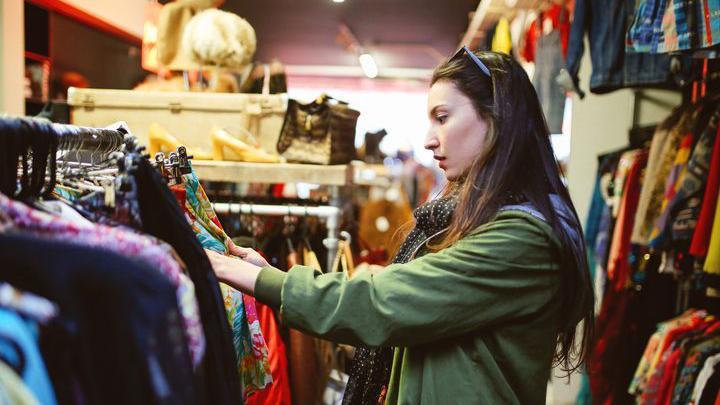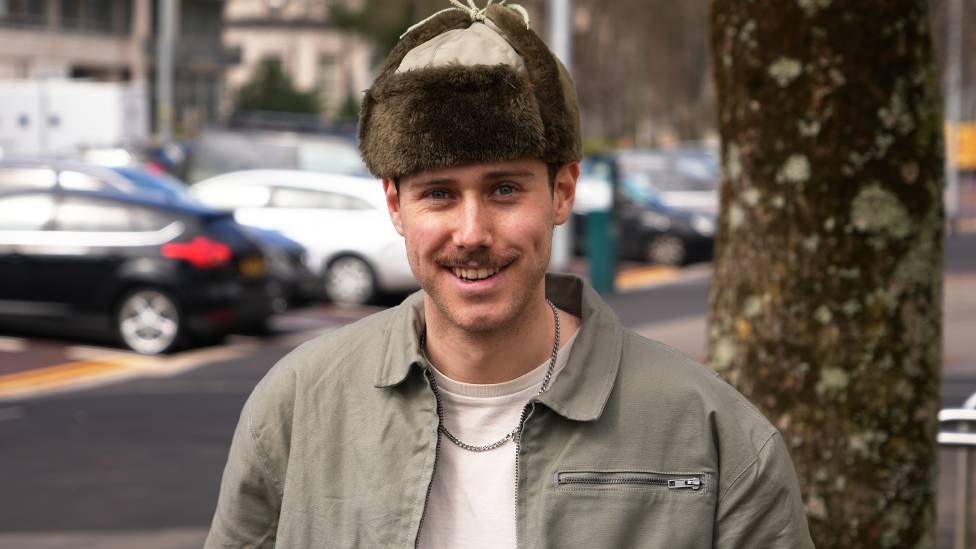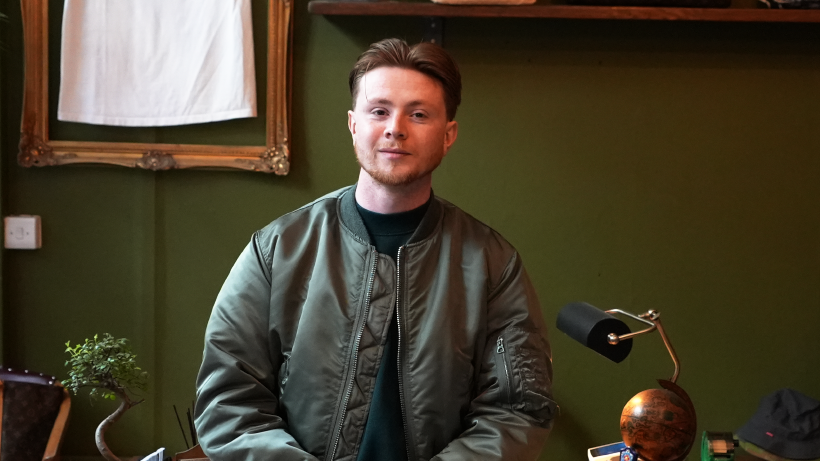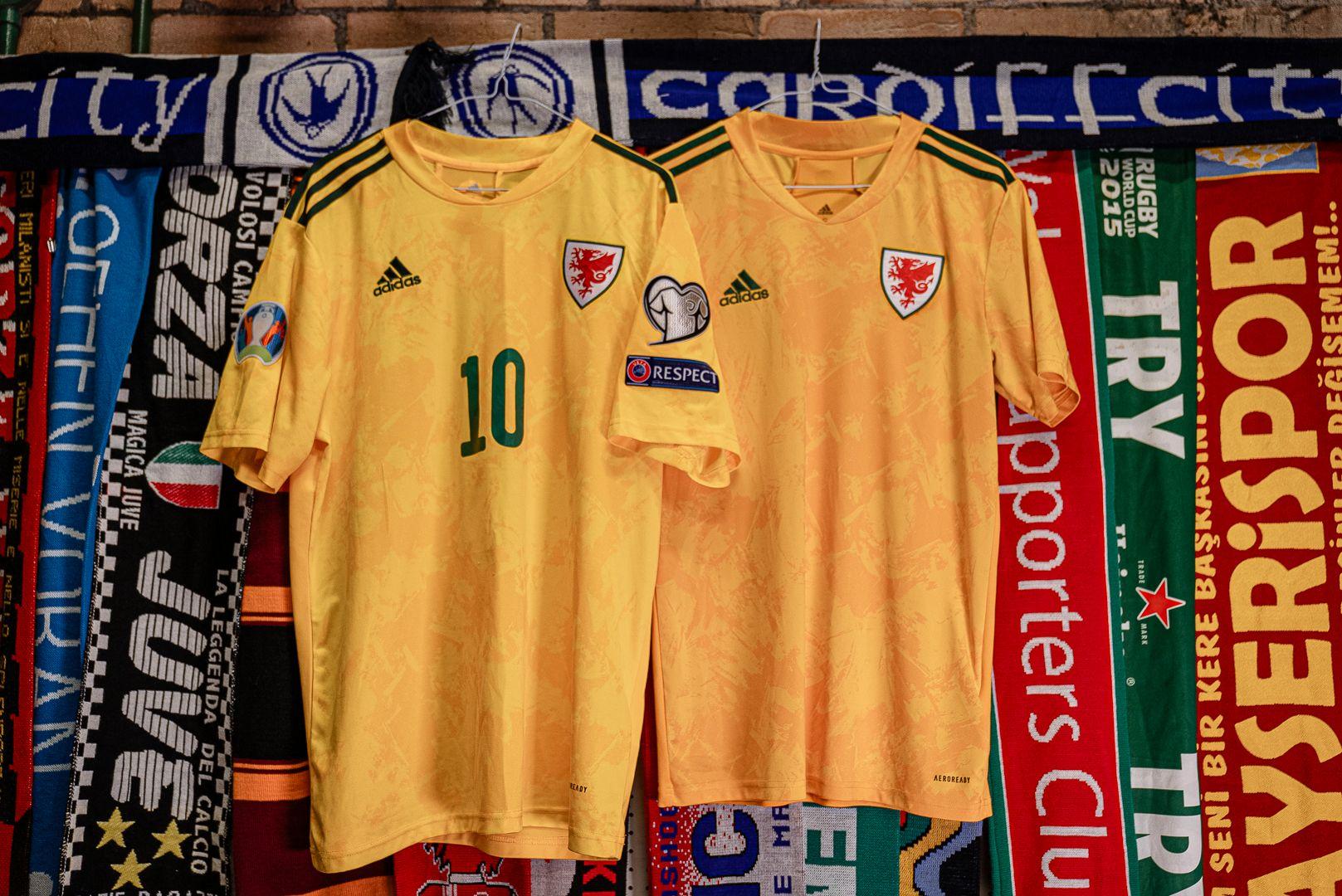
When influencer Torbian Dennis purchased a £150 pair of sneakers from a well-known online platform, the seller assured him that they were authentic.
However, after receiving them via mail, he had doubts and verified them using a specialized app — only to find out they were counterfeit.
The second-hand clothing industry is experiencing rapid growth and could reach a value of nearly £300 billion by 2029. This surge can be attributed to consumers adopting sustainable shopping habits or seeking out deals during the Cost of Living crisis.
However, bargain-seekers are now cautioned that criminals might be benefiting from peddling counterfeit versions of designer clothing, handbags, footwear, and even soccer jerseys at prices indicating their authenticity.
"I was told these items were genuine," stated Torbian, a 23-year-old fashion influencer based in Cardiff, who utilizes various online thrift marketplaces to discover affordable luxury brands.
I have frequently gotten tricked when purchasing Nike shoes on the internet.
Torbian managed to obtain a refund since he made the payment via PayPal.
He believes that some sellers think they are promoting authentic products, yet not all of them are genuine.

Individuals purchasing used clothing have been advised to remain vigilant about fake pre-owned items on platforms like eBay, Vinted, Depop, and Facebook Marketplace, along with traditional brick-and-mortar vintage stores.
"Helen Barnham from the Intellectual Property Office (IPO) stated that with the significant rise in popularity of secondary markets, criminals see this as a chance to exploit the situation," she explained.
The IPO has begun investigating whether criminals are attempting to penetrate supply chains and is likewise worried that some counterfeit products might be "unsafe or hazardous."
She mentioned that people are quite keen on getting a good deal or discovering a custom item, so they are investigating if individuals are stumbling upon counterfeit or fake products.
Customers might end up paying for products they believe are authentic only to discover later that these items are counterfeit and potentially dangerous.
Data provided by Citizens Advice indicates a 30% increase in reports regarding fake products being sold online over the past year. Individuals or entities found guilty of peddling counterfeits may be subject to unlimited financial penalties or imprisonment for as long as ten years.
Jacob Knight, who owns a second-hand store, has observed an increase in fake products and believes that it is the responsibility of the sellers to guarantee the authenticity of their items.
"You've got to do your research and really study and master the craft of telling which is which, as it's such a big problem now," said Jacob, who runs Knight Vintage in Cardiff.
He mentioned that some of the brands frequently counterfeited include Stone Island, Louis Vuitton, Gucci, and Prada.
The individual hailing from Cardiff, who is 26 years old, only purchases items from specific trusted collectors.
He mentioned, 'Sadly, once someone has a bad experience, they will continue to feel wary of similar items in the future and tend to become more careful when purchasing luxury goods.'
Jacob is concerned that an increase in counterfeit items could lead shoppers to lose trust in vintage stores.
"The businesses will struggle, and you won’t find them on the high street anymore," said Ms Barnham from the IPO.

This is likewise a worry for various online marketplaces, which are progressively positioning themselves as premier hubs for high-end purchases.
In March, Vinted introduced their exclusive line called House of Vinted, which features pre-owned accessories such as bags, footwear, and apparel from high-end labels including Prada, Gucci, and Jimmy Choo, with some items costing clients several thousand pounds.
The platform eBay and others have now introduced authentication services for premium and costly items. .
The head of eBay stated that they have verified 10 million luxury products, allowing buyers to "feel assured" that they won't receive counterfeit goods.
What steps should I take to safeguard against purchasing counterfeit items?
- Use trusted sellers
- Verify that the logos and trademarks are accurate.
- Check the refund policy
- Use a credit card or PayPal for payment.
- Keep in mind, if something seems too good to be true, it usually isn’t.
Kirsty Keoghan, who serves as the global general manager of fashion at eBay, stated that the demand for pre-owned luxury items like Nike Air Jordan sneakers, Rolex timepieces, and Hermes Kelly bags is experiencing rapid growth.
"As trends emerge or when demand increases, sadly, scammers tend to produce fake products," she stated.
A great deal of work occurs behind the scenes to ensure those listings do not appear on eBay.
The popularity extends beyond luxury handbags and sneakers; even vintage sportswear is experiencing significant growth in demand.
Daniel Rees purchases and resells items such as American Football jerseys, basketball gear, rugby uniforms, and soccer shirts.
"If attending a Wales football match, you’ll notice countless 1994 jerseys, with 95% likely being counterfeit," explained Daniel, a Welsh football enthusiast and owner of Cardiff Classic Shirts.
He stated that while some are obviously fake, others being sold online are "advertised at the prices they would command if they were authentic."

Daniel employs product codes along with his expertise on the manufacturing origins of genuine shirts and the appearance of authentic tags to identify the real ones.
Online marketplaces do not necessarily bear legal responsibility for fake items sold through their platforms, but the Chartered Trading Standards Institute (CTSI) aims to alter this stance due to their "significant concerns" regarding unsafe or counterfeit products.
The organization is urging online marketplaces to take responsibility for every product listed on their platforms and seeks revisions to the Product Regulation and Metrology Bill as it progresses through Parliament. They aim to make sure that companies are held accountable if they sell unsafe counterfeit items on their websites.
"The CTSI is deeply worried about the surge in unsafe or fake goods being sold by third-party vendors on online platforms recently," stated David MacKenzie from the CTSI.
Vinted, Depop, and eBay have stated that they will suspend or expel users found guilty of selling fake products.
Meta, the company behind Facebook Marketplace, stated that they collaborate closely with law enforcement to aid investigations and remove scammers from the platform.
It prompts users to watch out for indicators that sellers might be scammers, such as examining whether their profiles are newly created or lacking information, reviewing feedback from others, and arranging meetings in well-lit public areas.
eBay has stated that it collaborates with law enforcement agencies and regulatory bodies to minimize the presence of counterfeit items on its platform, aiming for a "secure and reliable" shopping experience for users.
- Teen earns £100K selling vintage items alongside his grandmother
- Fans of Sheffield Wednesday wearing counterfeit jerseys might be asked to depart.
- 'The appeal of vintage items has turned into a symbol of luxurious status.'
Related Internet Links
- 'Turning old clothes into an online career became my focus.'
- The booming thrift clothing industry is extensive – however, no one seems to be making money from it.
- To what extent is sustainable fashion both trendy and easy to get access to?

Out Of Topic Show Konversi KodeHide Konversi Kode Show EmoticonHide Emoticon